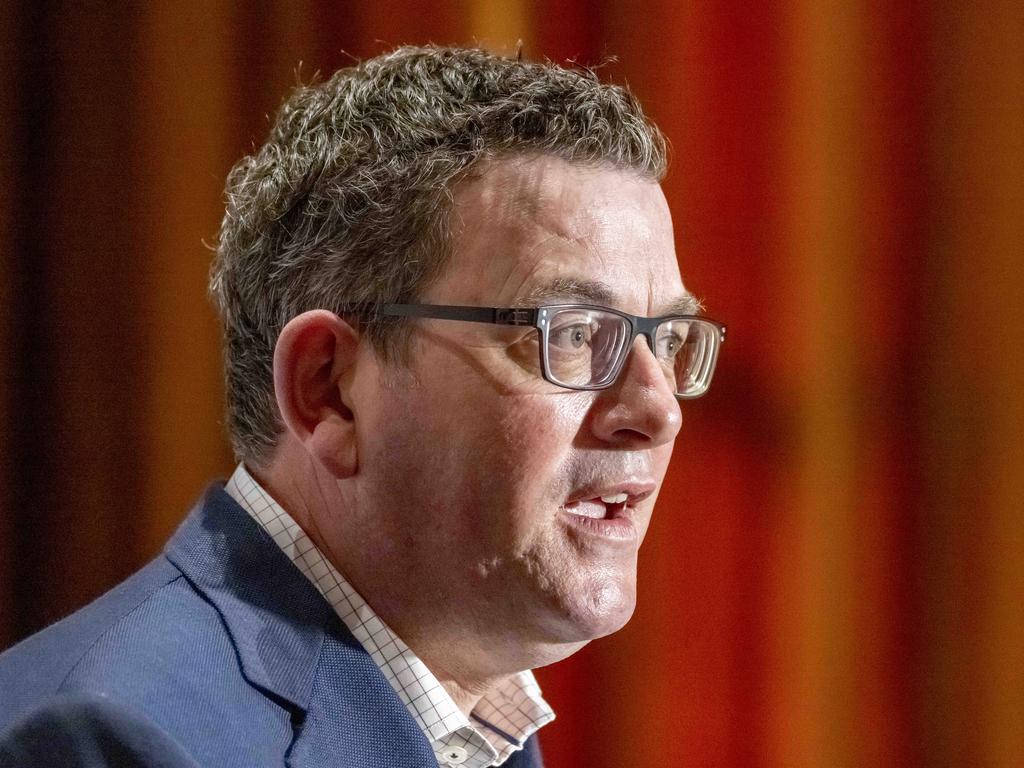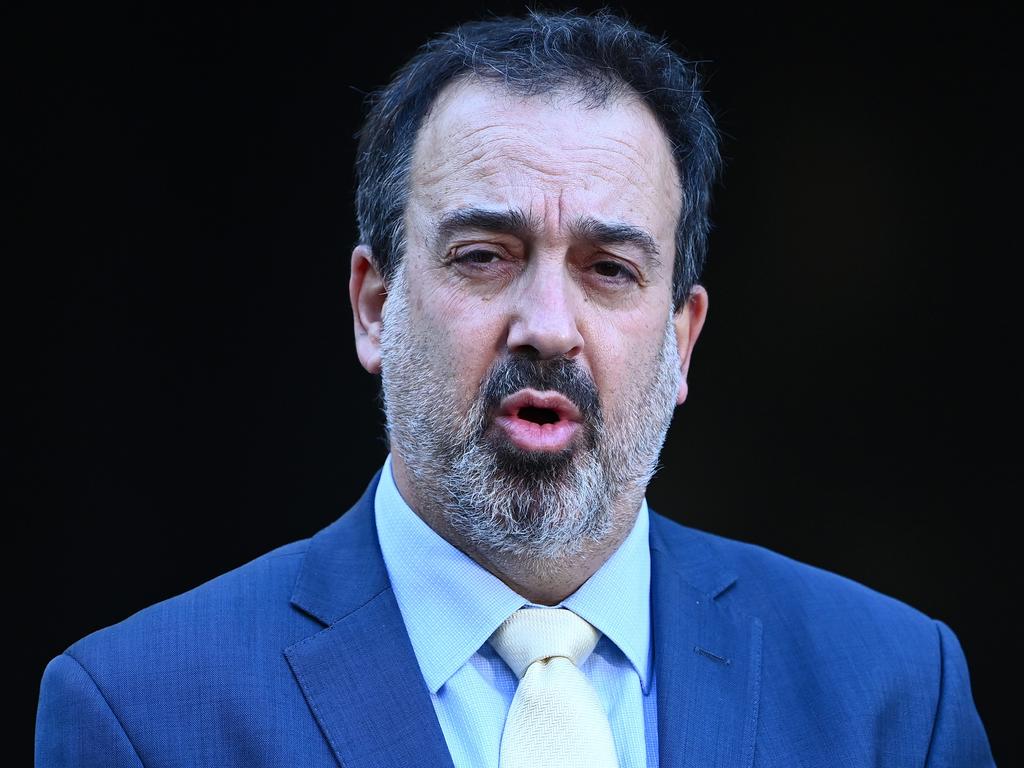
Howard Springs, the quarantine facility in the Northern Territory, is not a hotel. It’s close to what a purpose-built facility would be. The salient feature is that every cabin is separate, has front and back space all of its own, balcony and courtyard, and therefore lots and lots of air.
Combating infectious diseases with vaccines is very hi-tech. Absent vaccines, it’s much the same as it was in medieval times. You keep people with the disease away from people without the disease so it doesn’t spread. There is nothing better than fresh air and social distance.

The federal government is going to build a 500-bed dedicated quarantine facility at Mickleham in Melbourne’s north for $200m. Why does it cost $200m to build 500 beds in Australia? That’s another story, which also has a lot to do with our national malaise.
We have been dealing with this virus now for 18 months. Lockdowns et al have cost us tens of billions of dollars and massive disruption socially, educationally, economically and psychologically. Yet if we had started, even 12 months ago, to urgently build Mickleham-style facilities in Sydney, Melbourne, Brisbane, Adelaide and Perth, we would have them all done by now. They would have cost $1bn all up. For a bigger capacity, the cost might have been $1.5bn.
But for God alone knows what reason, the federal government, perhaps guided by the relentless do-nothing caution of the bureaucracy, decided not to do anything like this. As recently as a few weeks ago it was saying that it would entertain proposals from state governments, but any new facility had to be in addition to the existing hotel quarantine arrangements. That was a foolish provision seemingly designed to prevent anything happening. NSW Premier Gladys Berejiklian’s response was to say NSW was at full stretch already and could not contemplate staffing any new facilities.
The federal government’s position didn’t last long, courtesy of the Delta variant. Far from insisting on increased capacity, the federal government, admittedly at the states’ urging, cut the number of international arrivals by half. Australia has explicitly pursued a virus suppression strategy.
That’s why we mostly shut our international borders. But we would not do the one most obvious, necessary thing to support the suppression strategy – building dedicated, properly designed quarantine facilities.

We seem always to replicate the fiasco of our submarine acquisition process. We carefully identify the problem. We shrewdly use all the time available to us to do nothing. Then at the last minute we panic and do something wildly unsatisfactory.
Thus this week we’ve had the federal cabinet examining wild schemes such as using international cruise ships as quarantine facilities for incoming skilled workers or students.
Purpose-built quarantine facilities in each state would have been perfect for such tasks. We could well need quarantine facilities for years to come (though they could also easily be repurposed). Not only do we have no idea how Covid itself will yet mutate, scientists keep telling us there will be more pandemics in the future. They may be less deadly than Covid, which the Economist magazine a couple of months ago calculated may by then have killed 13 million people, or they may be considerably more deadly.
Say we get a new pandemic in five years and we still don’t have dedicated quarantine facilities with plenty of fresh air. Would that be smart?
We are going to need skilled workers, international students and permanent migrants, and we’re going to need them soon. If we had spent on such facilities a tiny dollop of the oceans of cash the government has sprayed everywhere, we could easily have 15,000 biologically secure beds around Australia and quite a capacity to keep going safely even in challenging and threatening circumstances.
The great success in Scott Morrison’s Operation Sovereign Borders came from doing things that had not been done before. Tackling specifically designed physical infrastructure with real urgency is absolutely foreign to both federal and state bureaucracies. So the whole idea is marooned somewhere in the deadly Bermuda triangle of interdepartmental committees and feasibility studies.
There is no plausible alternative to Berejiklian’s lockdown. As economics professor Quentin Grafton of the Australian National University has confirmed in a recent study, our lockdowns work. Paradoxically, the quicker you start them, the earlier you can get out of them.
By Wednesday, NSW had 71 Covid patients in hospital, 20 in intensive care, four on ventilators and two fatalities so far. There are as many people in intensive care under 50 as there are over 70. There are young people in ICU without comorbidities.
If, unvaccinated, we were “living with” the virus, our hospitals would be overwhelmed and there would be thousands of deaths. The Delta variant is almost certainly more deadly than the original Wuhan strain. This is the consistent reporting of doctors running ICUs. It was also the conclusion of an early study from Public Health England. The overall death rate from Delta in the UK is lower than earlier strains only because so many Brits are vaccinated or recovered from the virus or, among the most vulnerable, now dead.
For an unvaccinated population such as Australia, Delta is more contagious and almost certainly more deadly. That means that to maintain our suppression strategy until we reach a sufficient vaccination rate, we need to do more and faster, not less and slower. And Delta can rebound exponentially from very low numbers of community transmissions.
The NSW government deserves the strongest criticism for the breakout by the limo driver. If they really couldn’t regulate his behaviour because he was a private sector worker, that is an argument for having that job done by the public sector. With dedicated facilities, you could give flight crews the most deluxe cabins but transport them to their accommodation as you transport other international arrivals. It is fatuous to compare US city lockdowns with Australian city lockdowns as the US cities were constantly reseeded with people coming in from nearby cities, neighbouring states and overseas.
Suppression of the virus until we get vaccinated is the right policy. It is a mystery why even now we won’t do the most basic and obvious thing to achieve it – building dedicated quarantine facilities.








Here’s almost everything you need to know about the economics of Covid-19. There have been well over 20 breaches of hotel quarantine so far. Several have resulted in lockdowns, which cost the federal government not far short of a billion dollars a week, not to mention the depressing effect on the economy. Sydney’s lockdown could see the whole Australian economy go into negative growth.